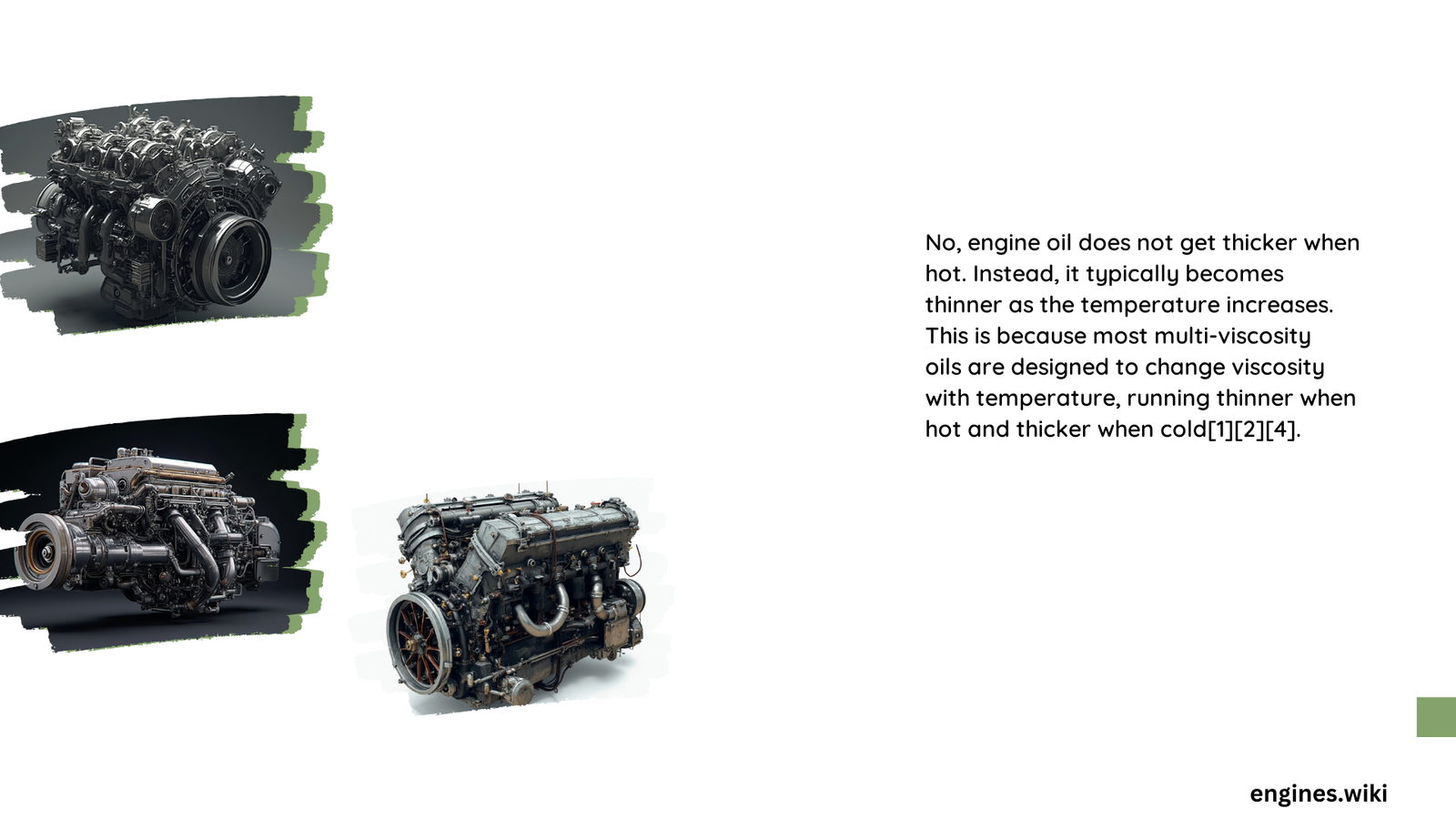Engine oil does not get thicker when hot; contrary to common misconception, it actually becomes thinner as temperatures rise. This fundamental characteristic of lubricating oils is critical for understanding engine performance, wear protection, and optimal lubrication. Temperature dramatically influences oil viscosity, causing molecular changes that reduce fluid thickness, which impacts how effectively an engine’s moving parts are protected and how smoothly they operate.
What Happens to Engine Oil Temperature?
Does Oil Viscosity Change with Heat?
Engine oil experiences significant viscosity transformations when exposed to different temperatures. The molecular structure of oil determines its behavior:
- Cold Temperatures: Oil becomes more viscous (thicker)
- Hot Temperatures: Oil becomes less viscous (thinner)
- Operating Range: Multigrade oils are designed to maintain consistent performance
Viscosity Index Explained
The Viscosity Index (VI) measures how much an oil’s thickness changes with temperature. Higher VI indicates more stable oil performance:
| Oil Type | VI Range | Temperature Stability |
|---|---|---|
| Conventional | 80-110 | Moderate |
| Synthetic | 120-220 | Excellent |
| High-Performance Synthetic | 220+ | Superior |
Why Does Oil Thin Out When Hot?
When engine oil heats up, several molecular interactions occur:
- Molecular Expansion: Oil molecules spread out, reducing fluid density
- Reduced Intermolecular Forces: Increased thermal energy weakens molecular bonds
- Decreased Resistance: Less friction between oil molecules
Scientific Evidence of Oil Thinning
Kinematic viscosity measurements demonstrate oil’s behavior:
SAE 5W-40 Oil Viscosity:
– At 40°C: 90.903 cSt
– At 100°C: 14.443 cSt
Observation: Viscosity drops significantly with temperature increase, proving oil thins rather than thickens.
Impact on Engine Performance

How Does Thinning Affect Lubrication?
Proper oil viscosity ensures:
– Reduced friction between engine components
– Effective heat dissipation
– Minimized wear and tear
– Optimal engine efficiency
Risks of Inappropriate Oil Viscosity
Potential consequences of using incorrect oil include:
– Increased engine wear
– Reduced lubrication effectiveness
– Higher fuel consumption
– Potential engine damage
Choosing the Right Engine Oil
What Factors Determine Oil Selection?
Consider these critical factors:
– Vehicle manufacturer recommendations
– Climate and operating conditions
– Driving habits
– Engine type and age
Recommended Practices
- Follow vehicle manual specifications
- Use multigrade oils for versatile performance
- Regular oil changes
- Monitor oil condition
Technical Insights
Molecular Perspective of Oil Behavior
Synthetic oils offer superior temperature stability due to:
– Uniform molecular structure
– Enhanced thermal resistance
– Consistent performance across temperature ranges
Conclusion
Understanding that engine oil thins when hot, not thickens, is crucial for proper vehicle maintenance. Multigrade oils are engineered to provide optimal protection across temperature variations, ensuring your engine remains well-lubricated and protected.
